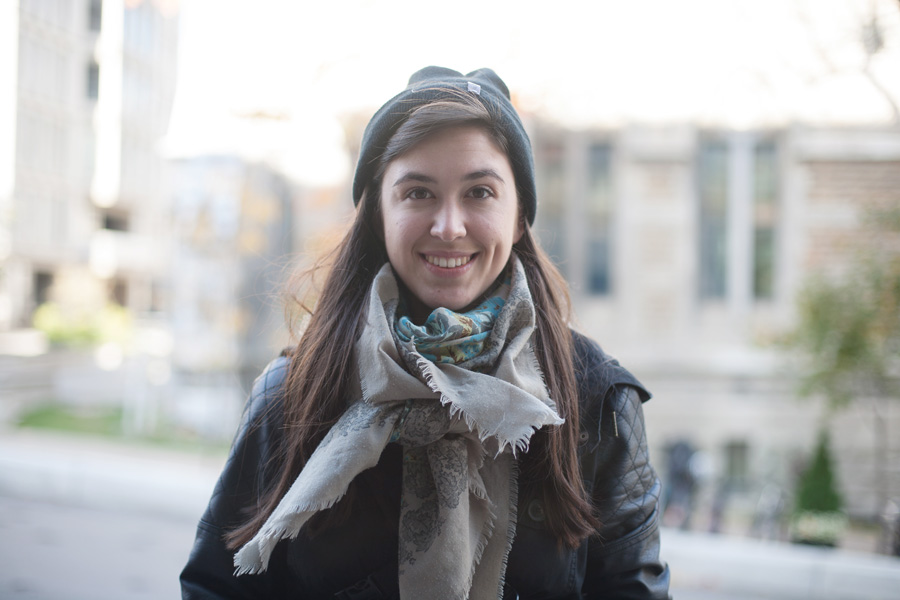Aurélie Lanctôt, a first-year law student at McGill, is taking a stand against the Parti Québécois’ (PQ) proposed Charter of Values. As a member of the non-profit organization Québéc inclusif, Lanctôt helped write an open letter opposing feminist pro-charter arguments that freedom of religion jeopardizes previously actions toward gender equality.
As a member of the Feminist Collective of McGill Law and correspondent on Radio-Canada’s Bande á part radio show, Lanctôt was already invested in matters of gender equity in the Montreal community. Lanctôt first became involved with Quebec inclusif when she was asked by “friends, and friends of friends” to be among the ‘premier signataires’ for their manifesto. Approximately 40 academics, lawyers, journalists, and students signed the manifesto when it was released in September.
“[Quebec inclusif] was born just after the PQ released the first draft about the charter,” explains Lanctôt. “It was just a spontaneous gathering of people that share some values.”
According to Lanctôt, the manifesto is not a political statement, but rather an expression of philosophically based arguments about how the charter would deny the province’s citizens—and specifically minorities—of fundamental rights.
Lanctôt said she personally views the charter as “xenophobic and racist.”
“I think it plays on the little fear in the population, taking advantage of people’s ignorance,” she said. “I feel it’s dividing politics and it’s not very healthy for society.”
Since it came out in September, the manifesto has garnered significant support, with 26,681 signatories from diverse backgrounds.
This past week, Québéc inclusif caught the attention of mainstream media outlets again when a smaller group of individuals from the organization felt the need to react to a letter written by Quebec TV personality Janette Bertrand. Bertrand’s letter suggests that the proposed charter promotes gender equality by preventing men from using religion as a means to dominate women. Québéc inclusif’s letter criticized these sentiments.
“The emancipation of women cannot be achieved by the imposition of a paternalistic measure like banning conspicuous religious symbols,” the letter reads.
Lanctôt stresses that feminism and freedom of religion are not necessarily in conflict, but can go hand in hand. While historically, men have used religion as a way to subjugate women, women may see the ability to express their religion as a means of asserting their own agency.
While Lanctôt says she is uncertain about what Québéc inclusif will do in the future, she says she is pleased with the response from the McGill community so far.
“I think there are a lot of students at McGill who share these ideas about the charter—francophone, anglophone, everybody,” she says. “The McGill community is very receptive.”
As a child, what did you want to be when you grew up?
I went through a lot of phases. For most of my childhood, I said I wanted to be a lawyer, but I don’t know anymore even if I want to study law.
If you could meet one person from history who would it be?
I would really like to sit for a coffee with René Lévesque. When I was younger, he was my idol. He still fascinate[s] me as a character that was [so] special and unique, with very strong and interesting ideas. But he also had a lot of flaws, which make him very interesting.
What’s your favourite place in the world?
Les iles de la Madeleine. I spent all the summers of my childhood there, and its just so beautiful.
If you could have any skill what would it be?
I’d really like to teleport.
What do you like about Law at McGill?
There’s a political side to law that really interested me. Here at McGill it’s a very philosophical approach.








